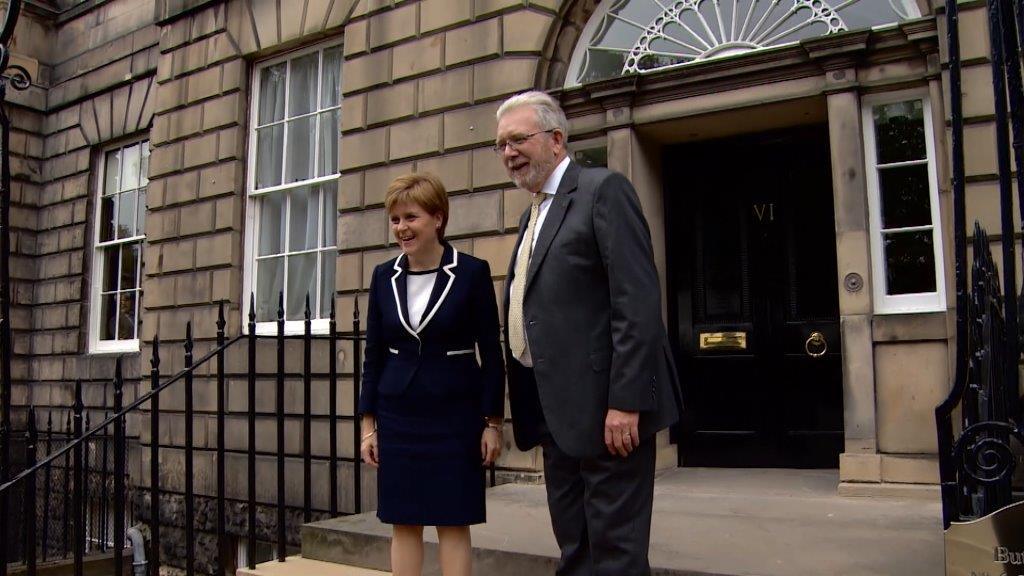Nicola Sturgeon: UK faces Brexit 'lost decade'
- Published
Nicola Sturgeon says the full impact of Brexit could be "severe"
Nicola Sturgeon has said there was a real risk the UK could be facing a "lost decade" after leaving the EU.
The first minister was speaking at a meeting of the Scottish Parliament's European Committee.
She told MSPs on the committee that she remained "profoundly concerned" about the implications of Brexit, with the early signs "not encouraging".
And she said the "least worst option" of remaining in the single market should be the key objective.
Ms Sturgeon also criticised the UK government's failure to deliver answers on what will happen in relation to country's departure from the European Union.
She said: "I think the lack of answers to any basic questions about what the UK government is actually seeking to achieve three months on from the referendum is just unacceptable, and becomes more unacceptable with every day that passes.
"And also this idea that there can be a cloak of secrecy over the position of the UK government as it develops, I just think is untenable."
While there would be a two-year period after Article 50 was triggered for negotiations to take place, Ms Sturgeon said it would take "goodness knows how many years after that" to determine the new relationship between Britain and Europe.
She added: "I do think there is a real risk that the UK is facing right now a lost decade or more, when the uncertainty and turmoil of Brexit and everything that comes after that, before there is clarity about what the UK's place in Europe and the world actually is will dominate."
'Not optimistic'
Ms Sturgeon also said she become increasingly frustrated at the delay in setting out Scotland's role in negotiations between the UK and EU.
And said she was not optimistic that the rights of EU citizens living in the UK would be protected, and that it was possible UK citizens would need to apply for visas to visit EU countries after Brexit.
And she argued that the argument for the House of Commons to be involved in the process of triggering Article 50 - which would start the two-year negotiation process - was "compelling".
If that happened, she said Holyrood could also have to give its backing for this, with MSPs potentially voting on a legislative consent motion (LCM).
But she insisted another independence referendum was "not the starting point" for the Scottish government, pledging to "methodically and systematically work through all of the options".
A UK government spokeswoman restated Prime Minister Theresa May's view that "it would not be right to provide a running commentary or reveal our hand prematurely".
The spokeswoman added: "The Department for Exiting the European Union is leading the UK's negotiations to leave the European Union and establish the future relationship between the EU and the UK.
"The government has committed to working very closely with parliament, devolved administrations and a wide range of other interested parties on this approach."
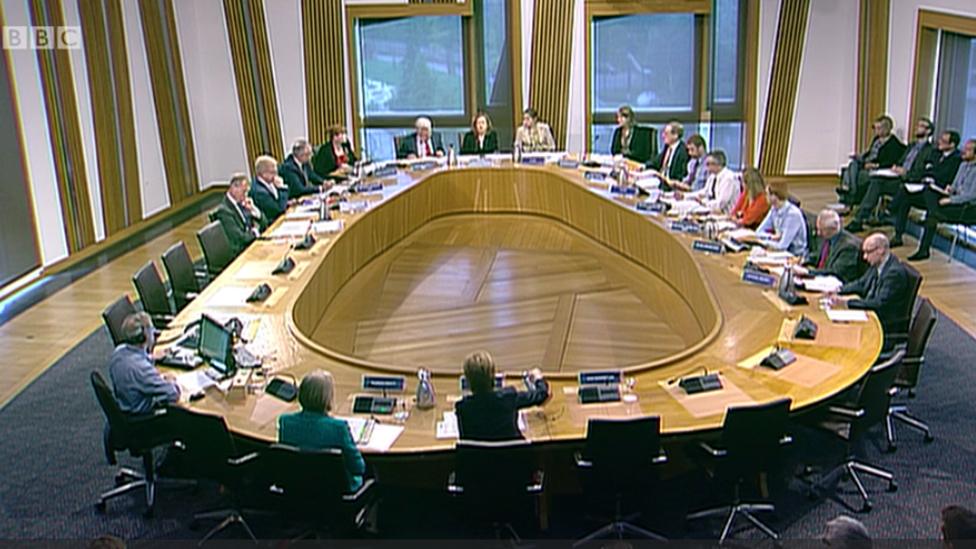
Michael Russell, the minister charged with making the Scottish case in Brexit negotiations, used a debate in the Holyrood chamber later on Wednesday to call on the UK government to clarify whether it wants to remain in the single market.
Mr Russell said: "We have no idea whether or not the UK wishes to remain within the single market, almost three months on from the referendum. That is not good enough.
"I am today inviting this parliament to add their voice to ours in holding the UK government to the prime minister's commitment and reiterating their support for our principled and values-driven approach to protecting Scotland's interests, fundamental to which is to remain inside the single market.
"For continued fairness and opportunity for Scotland's workers as well as for long-term prosperity for Scotland as a whole, we must not be dragged by the hardline Brexiteers out of the single market."
Strategic objectives
But opposition politicians questioned Ms Sturgeon's objectives as she seeks to play a key role in any EU negotiations.
Scottish Conservative deputy leader Jackson Carlaw said politicians, including the first minister, must accept the UK's vote to leave while the public was "weary" of the prospect of another independence referendum.
He said the Scottish government can "both make or break our influence and an opportunity in the exit negotiating strategy and discussions".
"The First Minister's tone has not been encouraging," he added. "Her obsession with independence reluctantly persuades us ... that her view of Scotland's interests can only be viewed through that prism."
Labour's Lewis Macdonald questioned whether maintaining UK membership of the single market would fulfil Scottish ministers' mission to protect Scotland's relationship with Europe.
"Does the independence option then come off the table if the UK successfully negotiates continuing membership of the single market?" he asked.
"Mrs May will then have to decide what matters more - keeping ministers in her cabinet who want to leave the single market or getting an independence referendum off the table.
"If, on the other hand, SNP ministers would wish to press on regardless in pursuit of a separate Scottish outcome, then they need to tell us what else is a key objective for them in these negotiations?"
Holyrood votes on motion
Following the debate, MSPs backed the Scottish government motion making clear a "key objective" in Brexit negotiations "must be for Scotland and the UK to remain inside the EU single market".
It was approved by 87 votes to 34.
MSPs also backed a Labour amendment calling on the government to consult and report back to the Parliament on its objectives and priorities by 112 to five.
A Conservative amendment calling on SNP ministers to "work in good faith with the UK Government in its forthcoming negotiations with the EU" was rejected by 29 votes to 93.

Analysis - By Nick Eardley, BBC Scotland political correspondent
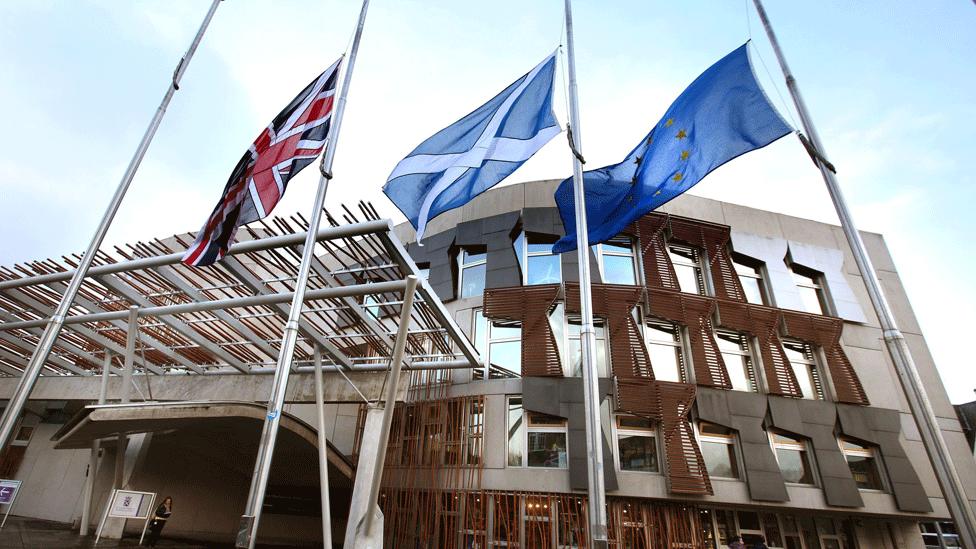
The UK and Scottish parliaments have been back for just over a week and we're still waiting for real detail on what Brexit will mean. But there are some key arguments emerging.
The Scottish government and the SNP group at Westminster are making clear they think single market access is key in Brexit negotiations. First Minister Nicola Sturgeon says she wants membership of the market.
But key figures in Europe, setting out their negotiating strategy, are saying that can only happen with free movement. The European Parliament chief negotiator said on Tuesday that the "freedoms are inseparable". In Brussels, European Commission President Jean-Claude Juncker said there would be no "a la carte access" to the EU for the UK.
That creates a problem for the UK government. Ministers in London have made clear they intend to limit immigration from Europe. Immigration levels are seen by many as a key reason for the leave vote in England and Wales. Ministers in London want access to the single market too, but are they prepared to compromise on free movement?
It's early days and official talks won't start for months, but the different demands here are a sign of how tough they will be.
- Published13 September 2016
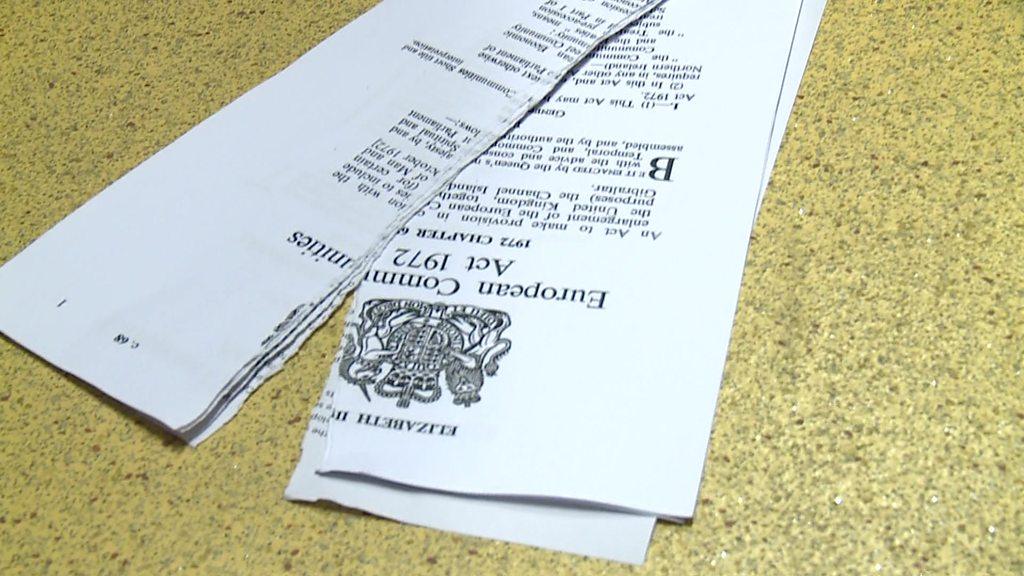
- Published5 September 2016
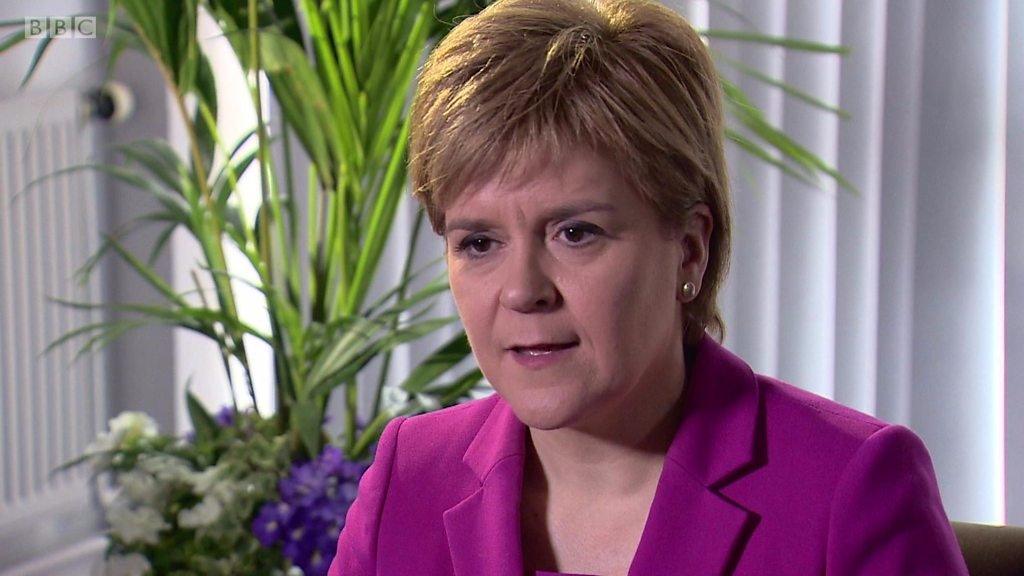
- Published25 August 2016
